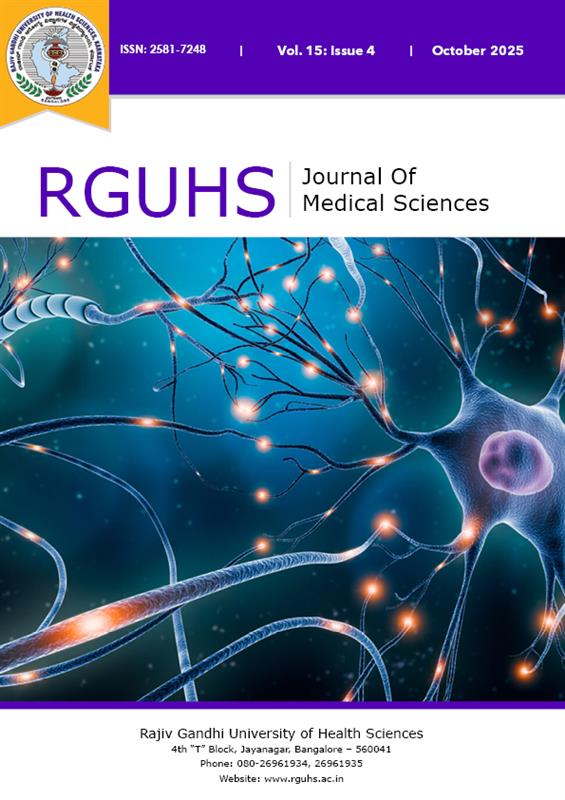
RGUHS Nat. J. Pub. Heal. Sci Vol: 15 Issue: 4 eISSN: pISSN
Dear Authors,
We invite you to watch this comprehensive video guide on the process of submitting your article online. This video will provide you with step-by-step instructions to ensure a smooth and successful submission.
Thank you for your attention and cooperation.
Nagesh BP*1 , Ramesh H2 , Banapurmath CR3
1 Resident, Professor, 2Professor and Head, 3Department of Pediatrics, JJM Medical College, Davanagere

Abstract
Objective: Foreign body aspiration (FBA) is one of the major causes of death in developing countries. Foreign body aspiration is also a major cause of persistent respiratory symptoms in children, which is commonly missed by pediatricians. Diagnostic delay may cause an increase in mortality and morbidity. We report our results and compare the relevant studies available in literature.
Setting: Tertiary care hospital (BCHI&RC) of J. J. M. Medical College, Davanagere, Karnataka India.
Subjects: Case records of 90 children diagnosed to have FBAover four and half years (January 2008-August 2012) were analyzed. Of them 73.3% were males and 27.7% females. Their ages ranged from 4 months to 15 years. Clinico-radiological features, types and location were studied. The data collected included age, sex, presenting complaints, clinical signs and type of foreign body. All the children underwent rigid bronchoscopy.
Results: Of 90 children studied the most common radiological finding was obstructive emphysema on the same side. Nearly three fourth (74.33%) were below the age of 3years. Delay in presentation ranged from 1 day to 1 year, most common being 7 days. Common symptoms were cough and hurried respiration. Groundnuts/peanuts and areca nut were the common foreign bodies. The common site of enlodgement of foreign body was right main bronchus (61%), left bronchus( 28%) and trachea (4%).
Conclusion: FBAis difficult to diagnose in children ant it can lead to mortality and morbidity. Misdiagnosis as asthma and respiratory infection can delay the definitive treatment. We suggest early bronchoscopy in suspicious cases. Clinical suspicion is the key to the diagnosis.
Keywords
Downloads
-
1FullTextPDF
Article
none
Supporting File
References
none